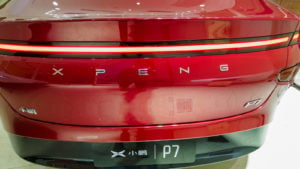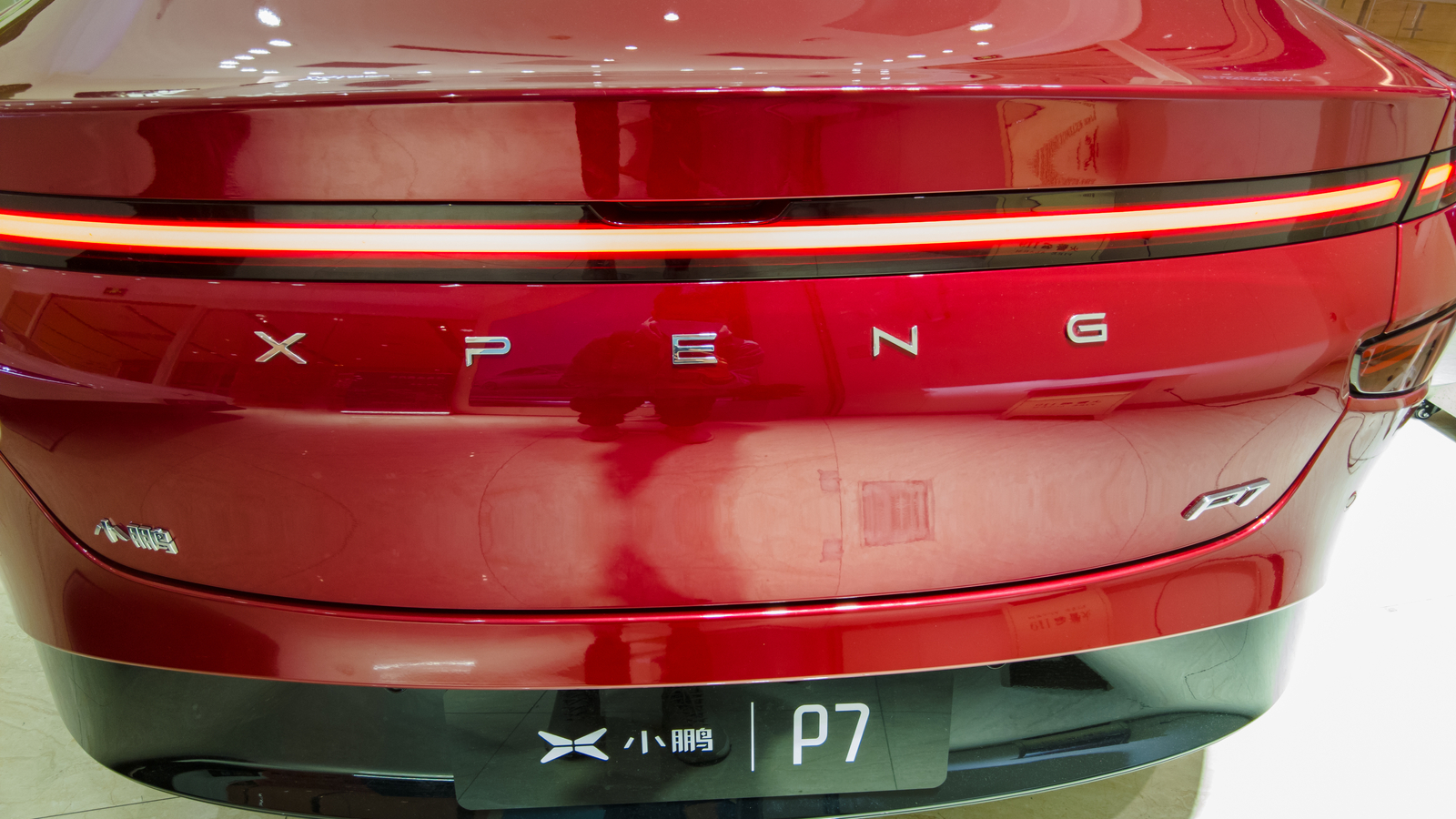It’s amazing how many people who rail at the Chinese Communist Party still want to buy the country’s electric vehicle stocks, such as Xpeng (NASDAQ:XPEV) stock.

Like other electric vehicle specialists, from Tesla (NASDAQ:TSLA) on down, Xpeng carries a valuation that’s divorced from reality. The best estimate for 2021 revenue is $2.1 billion. Its market cap is $32.4 billion. That’s almost as much as Ford (NYSE:F), which should do $130 billion in business next year.
Xpeng is backed by Alibaba Group Holding (NASDAQ:BABA), which boosted its stake in the company to 19% in September, as it came public. Since then, XPeng is up 143% and Alibaba down over 20%.
Industrial Policy
XPeng is a proxy for Chinese industrial policy. Almost half the electric cars on the world’s roads are Chinese and Tesla’s success there is an embarrassment.
China means to destroy Tesla and is backing its Chinese companies to do the job. The idea of bidding up the Chinese companies because Tesla’s valuation is out of whack thus makes no sense.
Each of China’s electric car start-ups is backed by a cloud. Tencent Holdings (OTCMKTS:TCEHY) is backstopping Nio (NYSE:NIO), which needed government investment to stay in the game last year. Xpeng was founded by a former Alibaba executive. Baidu (NASDAQ:BIDU) is backing WM Motor, which has yet to go public.
Until recently, most of China’s electric vehicles were utilitarian. They were made by companies like BYD (OTCMKTS:BYDDF), originally a battery maker backed by Warren Buffett of Berkshire Hathaway (NYSE:BRK.A, NYSE:BRK.B). It’s the move of these companies into high-end sedans, into Tesla’s market, that’s driving the stocks.
Why are the Chinese cloud companies even interested? They say it’s for the same reason Alphabet (NASDAQ:GOOG, NASDAQ:GOOGL) launched Waymo a decade ago, self-driving software. Alibaba has an operating system called YunOS, which includes mapping, voice control and cameras. It’s also using Lidar from DJI, best-known as a maker of drones.
The government’s aim is to recapture the domestic and international markets simultaneously. Xpeng is already exporting its G3 electric to Norway, where half the market uses electric motors.
Price Action
American investors are more concerned with Xpeng’s stock price than the industrial policy behind it.
Our Mark Hake sees how fast the Chinese electric market is growing and thinks Xpeng could be worth twice what people are now paying for it. Chris Lau calls it “a worthwhile gamble for speculators” because of the coming Biden Administration clean energy push. Tyler Craig is just looking for a change in the stock’s technicals before jumping in.
But even if Xpeng achieves analyst goals in 2021, you’re paying 18x revenue for it. That’s part of the attraction. A start-up can go from $900 million in 2020 sales to $2.1 billion in 2021 sales and sell at a premium. Sales of gas-powered cars, like those of General Motors (NYSE:GM) or Ford, are seen to be a burden.
Thus, the American market is following the Chinese market, backing the promise of start-ups like Fisker (NYSE:FSR), Lordstown Motors (NASDAQ:RIDE) and Faraday Future rather than people who know how to make cars.
The Bottom Line for XPEV Stock
Either all the companies making gas-powered cars now are going to go bust in the next five years, or the electric vehicle start-up boom is going to end in tears.
All these stocks are behind held up by Tesla’s ridiculous valuation. China is taking advantage of that to pursue its industrial policy. Xpeng is a product of that policy.
When you buy XPEV stock, you may think you’re betting on Jack Ma. You’re really betting on Xi Jinping.
Dana Blankenhorn has been a financial and technology journalist since 1978. He is the author of Technology’s Big Bang: Yesterday, Today and Tomorrow with Moore’s Law, available at the Amazon Kindle store. Write him at [email protected], tweet him at @danablankenhorn, or subscribe to his Substack https://danafblankenhorn.substack.com/. At the time of publication, he owned shares in BABA.
